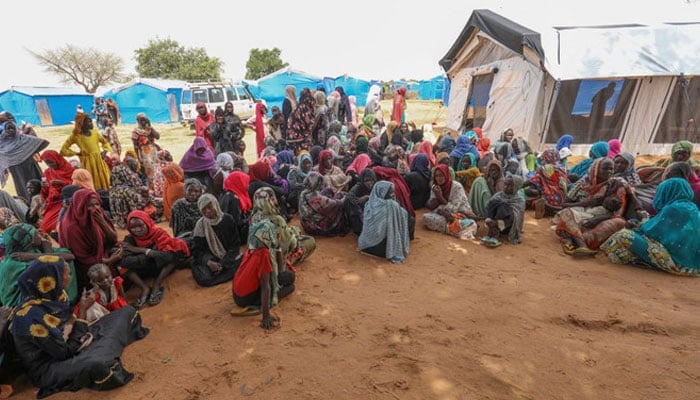26 poorest countries in worst financial shape since 2006: World Bank report
Report finds that these economies poorer today on average than they were on eve of COVID-19 pandemic
WASHINGTON: A fresh World Bank report on Sunday revealed that the world's 26 poorest countries, home to 40% of the most poverty-stricken people, are more in debt than at any time since 2006 and increasingly vulnerable to natural disasters and other shocks.
The report finds that these economies are poorer today on average than they were on the eve of the COVID-19 pandemic, even as the rest of the world has largely recovered from COVID and resumed its growth trajectory.
Released a week before World Bank and International Monetary Fund annual meetings get underway in Washington, the report confirms a major setback to efforts to eradicate extreme poverty and underscores the World Bank's efforts this year to raise $100 billion to replenish its financing fund for the world's poorest countries, the International Development Association (IDA).
The 26 poorest economies studied, which have annual per-capita incomes of less than $1,145, are increasingly reliant on IDA grants and near-zero interest rate loans as market financing has largely dried up, the World Bank said. Their average debt-to-GDP ratio of 72% is at an 18-year high and half of the group are either in debt distress or at high risk of it.
Most of the countries in the study are in sub-Saharan Africa, from Ethiopia to Chad and Congo, but the list also includes Afghanistan and Yemen.
Two thirds of the 26 poorest countries are either in armed conflicts or have difficulty maintaining order because of institutional and social fragility, which inhibit foreign investment, and nearly all export commodities, exposing them to frequent boom-and-bust cycles, the report said.
"At a time when much of the world simply backed away from the poorest countries, IDA has been their lifeline," World Bank chief economist Indermit Gill said in a statement. "Over the past five years, it has poured most of its financial resources into the 26 low-income economies, keeping them afloat through the historic setbacks they suffered."
IDA normally is replenished every three years with contributions from World Bank shareholding countries. It raised a record $93 billion in 2021 and World Bank President Ajay Banga is aiming to exceed that with more than $100 billion in pledges by December 6.
Natural disasters have also taken a greater toll on these countries over the past decade. Between 2011 and 2023, natural disasters were associated with average annual losses of 2% of GDP, five times the average among lower-middle-income countries, pointing to the need for much higher investment, the World Bank said.
The report also recommended that these economies, which have large informal sectors operating outside their tax systems, do more to help themselves. This includes improving tax collections by simplifying taxpayer registration and tax administration and improving the efficiency of public spending.
-
At least 30 dead after heavy rains hit southeastern Brazil, 39 missing
-
Japan plans missile deployment near Taiwan by 2031 amid growing regional tensions
-
Trump delivers longest State of Union address in history: Inside key details on economy, security and global strategy
-
Trump’s 2026 State of Union address: Inside key takeaways, major policy shifts & top announcements
-
Rep. Al Green removed from House chamber during Trump’s State of Union address: Here’s what happened
-
Bill Gates breaks silence on Epstein links, ‘took responsibility for his actions’ during town hall meeting
-
President Donald Trump delivers the traditional State of the Union address to Congress
-
Australia: Bomb threat behind evacuation of PM Anthony Albanese linked to Chinese dance group












